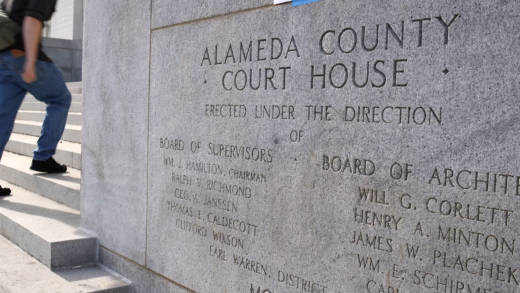Immigration agents made courtroom arrests under the Obama administration, but the pace appears to have picked up under President Trump, whose administration has seen a roughly 40 percent surge in arrests overall and eliminated directives that prioritized arresting immigrants who have criminal records and are in the U.S. without authorization.
Last March, California Supreme Court Chief Justice Tani Cantil-Sakauye asked ICE to stay out of the state's courts, writing, "Courthouses should not be used as bait in the necessary enforcement of our country's immigration laws."
Cantil-Sakauye expressed cautious optimism about the new directive.
"If followed correctly, this written directive is a good start," she said in a written statement. "It’s essential that we protect the integrity of our state court justice system and protect the people who use it."
Washington state Supreme Court Chief Justice Mary E. Fairhurst wrote last year that ICE's presence was "deeply troubling because they impede the fundamental mission of our courts, which is to ensure due process and access for everyone, regardless of their immigration status."
Sarah Mehta, a human rights researcher with the American Civil Liberties Union, said the new policy is useful for those seeking to understand ICE's self-imposed limits. But she added that it may have come too late to allay fears among those who feel ICE may target them.
"A lot of the damage has been done over the last year," she said.
In a statement issued Wednesday, San Francisco District Attorney George Gascón criticized civil immigration arrests at courthouses. The city's policies minimizing cooperation with federal immigration enforcement have made it a target for the Trump administration's campaign against so-called sanctuary cities.
"I know it to be a fundamental truth that our neighborhoods are safer when people from all communities can work with law enforcement and come to our courthouses without fear that their immigration status will be used against them," Gascón said. "Any policy that supports immigration agents making arrests in our courthouses serves as a deterrent to participation."
ICE reaffirmed that a 2014 policy to avoid deportation arrests at "sensitive locations," including schools, day-care centers, hospitals, places of worship, funerals, weddings, rallies and public demonstrations, is still in place. Courthouses have never been part of that list.
Homan, ICE's acting director, has said metal detectors at courthouse entrances provide added safety for officers seeking to make arrests there.
"We're not going to do it in the courtroom but to me it's safer," Homan said in an interview in November. "It makes sense to arrest a criminal in a criminal courthouse."
This post contains reporting by The Associated Press
